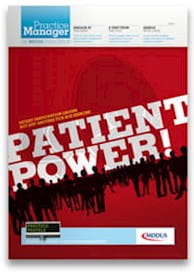WOULDN’T it be nice if we lived in an ideal world where all staff got on well together and there were no issues between individuals? Unfortunately human behaviour is far too fickle for ideal worlds. In reality, personality clashes between staff can cause major upset and disruption in any practice environment.
Reasons for flare-ups and fall-outs amongst employees may often seem petty but their impact can have major consequences in the workplace. Personality clashes can distract others from their work, cause friction between team members (who can be made to feel they need to take sides), dampen morale, affect professionalism and customer service standards and threaten productivity.
It has been reported that supervisory staff spend an average of 18 per cent of their time dealing with personality clash issues between employees. We cannot expect all employees to be the best of friends but we can at least expect professional behaviour whilst at work. Employees should act with respect to both colleagues and patients at all times.
The ‘seven don’ts’ for dealing with such issues are:
- Don’t avoid the situation – any personality clash issue needs to be tackled, as such issues will not get better by themselves.
- Don’t delay and act promptly – the earlier a situation is tackled the less likely to cause major impact in the practice.
- Don’t take sides.
- Don’t spend time trying to allocate blame – focus on moving the situation forward.
- Don’t force any party to apologise – this may worsen the situation and cause more friction between the two parties.
- Don’t treat the employees like children – although they may be acting like them!
- Don’t deal with the matter in public – always arrange private meetings to discuss the issues.
In some situations it may be enough to speak to both parties involved on an informal basis and resolve the issues. If this approach does not work and there continues to be problems, it may be that formal disciplinary procedures need to be invoked. As with any potential disciplinary hearing, it is essential that you carry out a full investigation so that you have your facts in place before deciding whether any further action needs to be taken against the employee or employees, and if it merits disciplinary action being invoked.
Remember, there are always two sides to a story. You need to get the facts and details from all the employees involved as individual accounts of events are likely to vary. Any other witnesses should also be spoken to, although it may not be appropriate to ask patients for their account of the situation. If, after a thorough investigation, you feel that formal disciplinary action should be taken, the employee should be invited in writing to attend a disciplinary hearing with su¨cient notice and informed of their right to be accompanied.
The employee will need to be advised of what standards of performance will be ex- pected in the future and it may be benecial to get all the parties into a meeting to discuss the dispute and how things can be improved in future to avoid further conflicts.
Strategies to consider helping move a situation forward include:
- Urge the parties to think about their actions and behaviours and how these may be perceived by the other party and their colleagues.
- Consider providing conflict resolution training to all employees.
- Ask the parties involved to write out the issues they have and their side of the dispute as it may help them see that they are not so far apart in reality.
- Refer the parties for mediation, counselling or arbitration.
- Appeal to the employee’s sense of professionalism and team working.
It is important that when dealing with personality clashes you focus on the behaviours of the employees and not personalities. Remember that dealing with such conflicts can be hard but to allow them to fester is even worse.
Liz Symon is an employment law adviser at MDDUS
This page was correct at the time of publication. Any guidance is intended as general guidance for members only. If you are a member and need specific advice relating to your own circumstances, please contact one of our advisers.
Read more from this issue of Practice Manager

Save this article
Save this article to a list of favourite articles which members can access in their account.
Save to library
